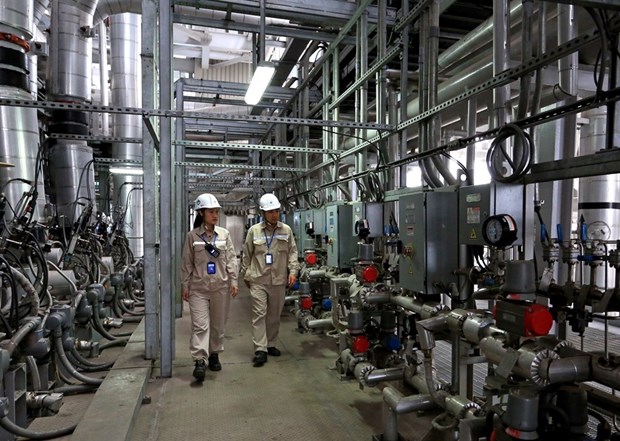 |
|
Staff of EVN record electricity use in Ha Noi. Electricity prices are asked to be adjusted more frequently to better serve the economy. — Photo dangcongsan
|
Long spoke at a seminar on electricity retail prices yesterday in Ha Noi, saying: “There should be more adjustments of prices than now. The adjustment of electricity prices after two years puts pressure on new prices, shocking the economy.”
Long said: “It should be a six-month adjustment, instead.”
“In such a market economy, the input and output prices must go together. The input prices for electricity went up but the retail prices were kept unchanged. When they changed, the gap was huge, and it is unnatural.
“It will shock everyone who pays,” Long said.
At the same time, such a delay impacts the "flexibility" of the economy, Long said.
Electricity prices have been adjusted seven times since 2010. The latest adjustment was at the end of 2017.
Also attending the seminar, Nguyen Tien Thoa, chairman of the Appraisal Committee, has another view on adjusting electricity prices.
Thoa said: “Electricity is the essential input to the whole economy, so frequent fluctuations of its prices will affect the responses of businesses and lead to risks.”
Thoa said: “There was a time they wanted to adjust the prices once every three months, then they planned it twice a year. But when we make macro stability a priority, those goals were too difficult as they will shock businesses.”
Thoa also said to have a competitive electricity market, they must have a “roadmap.”
Nguyen Anh Tuan, director of the Electricity Regulatory Authority, Ministry of Industry and Trade said: “We are looking to make a competitive market.”
Tuan confirmed that recent discussion on electricity prices was just a move to fix the price structure in the future, adding that: “It is not to increase electricity prices.”
In February, the Ministry of Industry and Trade (MoIT) proposed a new retail electricity tariff, which is divided into five rates instead of the current six rates.
Rate 1 will affect households using from 0 to 100 kWh at VND1,549 per kWh; rate 2 will affect households using from 101 to 200 kWh at VND1,878 per kWh, rate 3 will affect households using from 201 to 400 kWh at VND2,431 kWh, rate 4 will affect households using from 401 to 700 kWh at VND2,701 per kWh and rate 5 will affect households using 701 kWh upwards at VND2,878 per kWh.
Tuan told the seminar the MoIT would collect ideas for the proposal from all relevant places by March 10 before reporting it to the Prime Minister. — VNS

Ministry proposes new electricity tariffs
The Ministry of Industry and Trade has proposed a new retail electricity tariff which is divided into five rates instead of six. In this option, 98.2 percent of households in the country would see no increase or even lower power bills.

Vietnam faces exchange rate risks when importing electricity
Vietnam plans to buy more electricity from neighbouring countries, but a big loss of VND3.09 trillion is pending.
 Electricity prices should be adjusted more frequently to better promote market competitiveness, said Tran Dinh Long, Vice President of the Vietnam Electricity Association.
Electricity prices should be adjusted more frequently to better promote market competitiveness, said Tran Dinh Long, Vice President of the Vietnam Electricity Association.